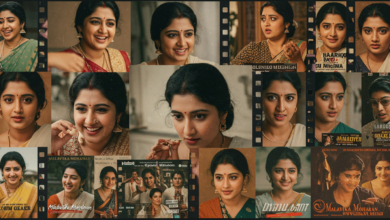Becoming a Director for a Broadway Production: A Guide to the Role

The allure of Broadway is undeniable. The dazzling lights, the talented performers, and the incredible stories told on stage captivate millions every year. But behind every successful Broadway show lies an essential figure—the director. A director for a Broadway production plays a pivotal role, from shaping the vision of the show to guiding actors, designers, and the crew in bringing that vision to life.You know about openrendz.
What Does a Broadway Director Do?
A Broadway director is the creative mastermind behind a production. They are responsible for overseeing all aspects of the show, from the interpretation of the script to the final performance. The director’s vision is central to how the production will look, feel, and resonate with audiences. They work closely with the playwright, choreographer, musical director, set designer, and costume designer to ensure every element aligns with the intended theme and tone.
Before a Broadway production hits the stage, the director’s work begins with pre-production. This involves a deep analysis of the script and discussions with the creative team. The director needs to decide how the story will be told, the pacing of the show, the atmosphere they wish to create, and the overall interpretation of the characters. They also hold casting sessions, where they select actors who embody the characters in the most compelling way.
The director works hand in hand with the set, lighting, and costume designers to create a visual concept for the production. The director’s role during this phase is to guide the designers and ensure that all design elements align with their vision. They also develop the stage choreography, especially in musical productions, and collaborate with the musical director to shape the music and performances.
Rehearsals: Bringing the Vision to Life
Once the cast and crew are assembled, the director’s job transitions into the rehearsal process. During rehearsals, the director works directly with actors to develop their performances, fine-tune their delivery, and help them connect with the characters they portray. The director’s guidance extends beyond just line readings—they offer emotional direction, helping actors explore their characters’ motivations, desires, and conflicts.
One of the director’s most important roles during rehearsals is to create a cohesive performance. They ensure that the actors interact seamlessly, maintaining the pacing and tone of the show. The director also observes every scene closely to determine where adjustments need to be made, whether it’s in blocking (how the actors move on stage) or in the overall rhythm of the show.
During Previews and Opening Night
Even after rehearsals, the director’s job is far from over. In the weeks leading up to opening night, the show enters a preview phase. This is when a select audience views the production, allowing the director and team to assess what works and what needs tweaking. The director will make any necessary adjustments, whether in timing, stage directions, or performances.
Opening night marks the culmination of months of hard work. For the director, this is an incredibly rewarding moment, as they see their vision come to life on stage before a live audience. However, even after opening, the director remains involved in ensuring the production runs smoothly, handling any issues that arise and overseeing the consistency of each performance.
Skills and Qualifications for a Broadway Director
Becoming a director for a Broadway production requires a blend of creative talent, leadership skills, and extensive experience. Directors must have a strong understanding of theater and performance, with a deep knowledge of acting, design, and technical aspects of the show. Most successful directors have spent years working in the theater, often starting in assistant director roles, and working their way up through smaller productions before securing a Broadway opportunity.
A director must be an effective communicator, capable of working with large teams and managing multiple facets of the production simultaneously. They should also possess a deep well of creative ideas, able to envision how a script can be transformed into a memorable theatrical experience. A keen eye for detail and a passion for storytelling are essential traits for any director aspiring to work on Broadway.
Conclusion
Directing a Broadway production is one of the most rewarding and challenging jobs in the theater world. A director brings the magic of live theater to life, guiding the creative team and cast to create a performance that resonates with audiences. From pre-production to opening night, the director is at the helm, ensuring that every element of the show works harmoniously. While the path to becoming a Broadway director is long and requires dedication, it is a dream job for many theater professionals, offering the opportunity to leave a lasting impact on the stage.



